Bayard Rustin will be among the recipients of the Presidential Medal of Freedom today in a ceremony at the White House. Though he died in 1987 due to a ruptured appendix, his work as the chief organizer of the groundbreaking 1963 March on Washington for Jobs and Freedom will forever live on as a hallmark moment in American civil rights movement. His legacy has remained intact largely thanks to his surviving partner, Walter Naegle. Both Rustin and Sally Ride, LGBT pioneers in their respective fields, will be posthumously honored by President Obama Wednesday with the highest honor an American civilian can receive. Here's some of what you need to know about Bayard Rustin.
1. Rustin's grandmother was a Quaker, which had a clear influence on his views on nonviolent resistance, peace, and equality. Later he also absorbed the teachings of Mahatma Gandhi, African-American labor leader A. Philip Randolph, and labor leader and minister A.J. Muste. During World War II, Rustin worked for Randolph to fight racial discrimination in hiring for war-related jobs. Rustin was a member of several pacifist groups and was jailed twice for not registering for the draft.
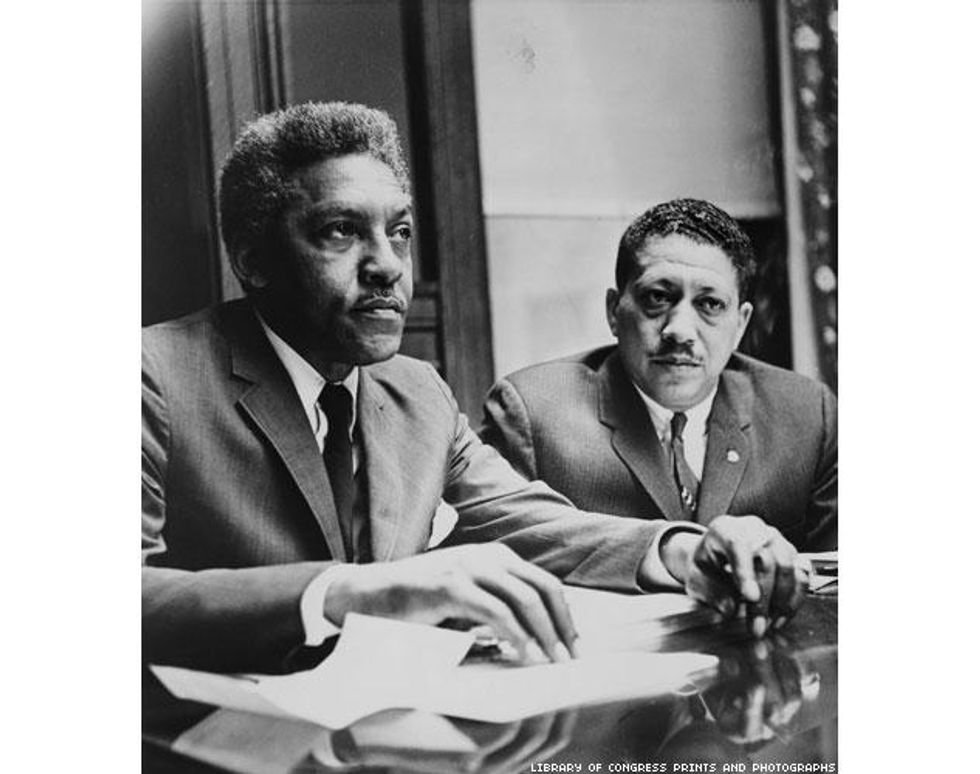
2. While at City College of New York, Rustin became an organizer for the Young Communist League. He quit in 1941 when the organization changed its focus because of World War II. He later denounced communism after he became disillusioned with the party, and joined with the democratic socialist movement.
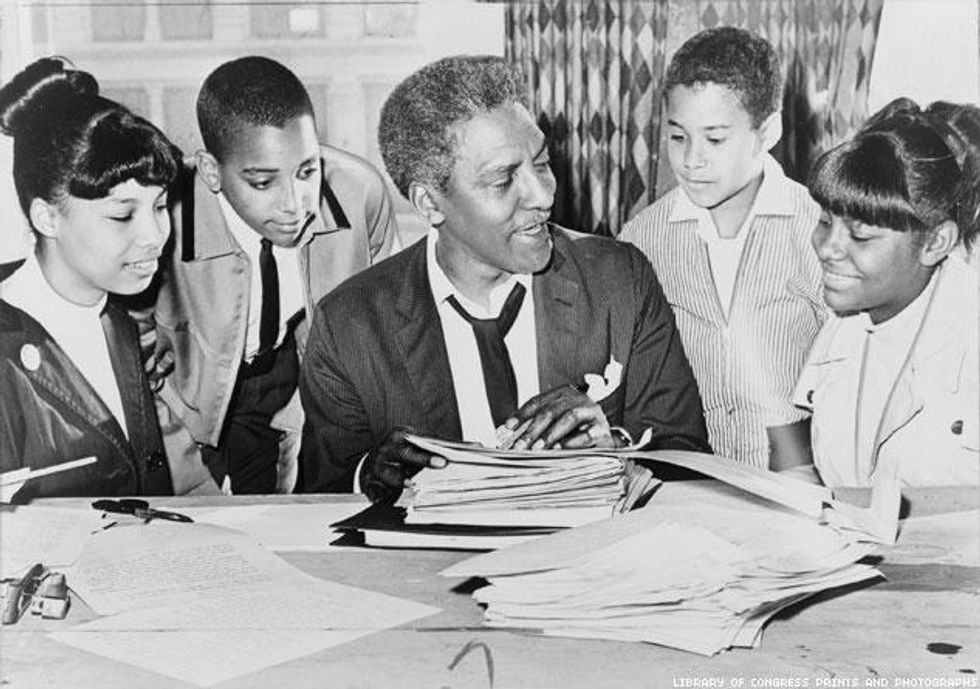
3. To earn money to pay for his tuition (at Wilberforce University, Cheyney State College, and the City College of New York) Rustin worked several odd jobs and sang with Josh White and His Carolinians.
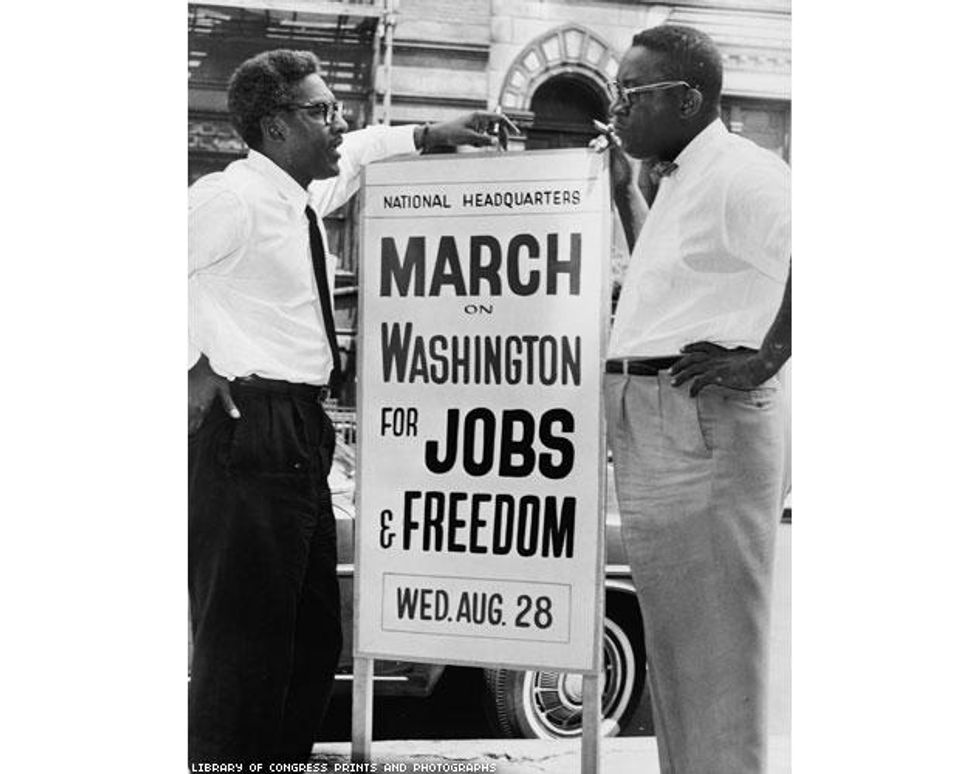
4. In 1942 he went to California on behalf of the Fellowship of Reconciliation and the American Friends Service Committee to help Japanese-Americans who were imprisoned in internment camps during the war.
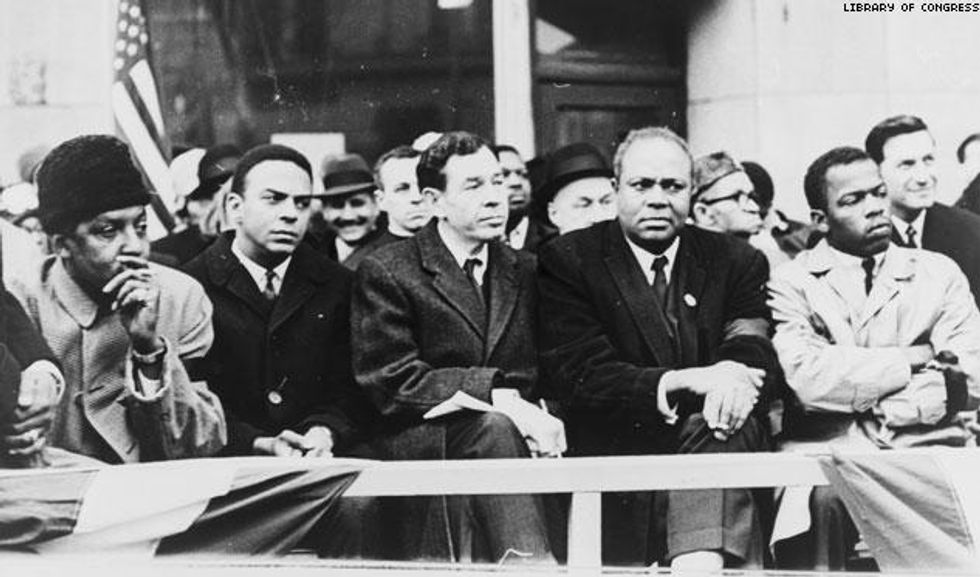
5. In addition to his draft-related arrests, Rustin was arrested in North Carolina in 1947 for protesting against the segregated public transit system. He was sentenced to work on a chain gang for 22 days. He gave an account of the ordeal in a series for the New York Post.
6. He also served 60 days in jail in 1953 for having sex with two men in a parked car in Pasadena, Calif. After his years of work with the Fellowship of Reconciliation, the organization demanded that Rustin resign from his position because of his arrest. Nonetheless, Rustin never denied being gay.
7. Rustin clashed with a younger wave of more militant leaders like Malcolm X, disagreeing over assimilation into the larger American society. Especially after the passage of the 1964 Civil Rights Act, Rustin advocated for a shift in focus to electoral politics, while others wanted to take to the streets in protest. Some attacked him as an "Uncle Tom," while other black nationalists gay-baited him.
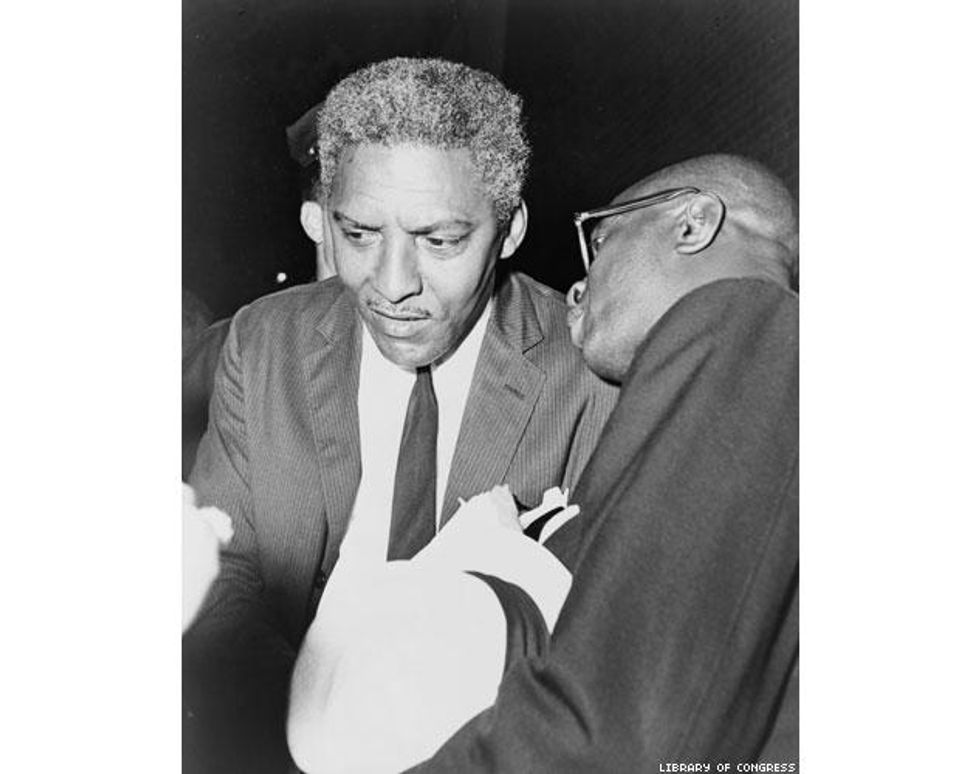
8. It took persistence for Rustin to gain his prominence among leaders of the burgeoning civil rights movement. A young Martin Luther King Jr. took a liking to Rustin in the early days of organizing boycotts, and he even relayed a great deal of his pacifist teachings to King. However, he was eventually pushed out of the coordinating of the 1956 Montgomery bus boycott because of his "personal problem." In 1960, as the Democratic Party was considering bringing civil rights into the platform, Congressman Adam Clayton Powell Jr. described Rustin as an "immoral element" in the movement. A frustrated Rustin was again forced to resign, this time from King's staff.
{C}
9. His longtime mentor, A. Philip Randolph, is credited with not only conceiving of the idea of the March on Washington but also championing Rustin as leader of the organizing behind it. While some other black leaders worred that Rustin's sexual orientation would be a liability, he ended up being the mastermind behind the biggest demonstration in U.S. history to that date. In the matter of a few months, Rustin brought together a staff, battled infighting, thwarted attacks from segregationists, and coordinated the event with the audacious goal of bringing 100,000 people to Washington, D.C. "It will show the black community as united as never before -- united also with whites from labor, and the churches, from all over the country," Rustin said. In the end, an estimated 250,000 people descended upon the Washington Mall.
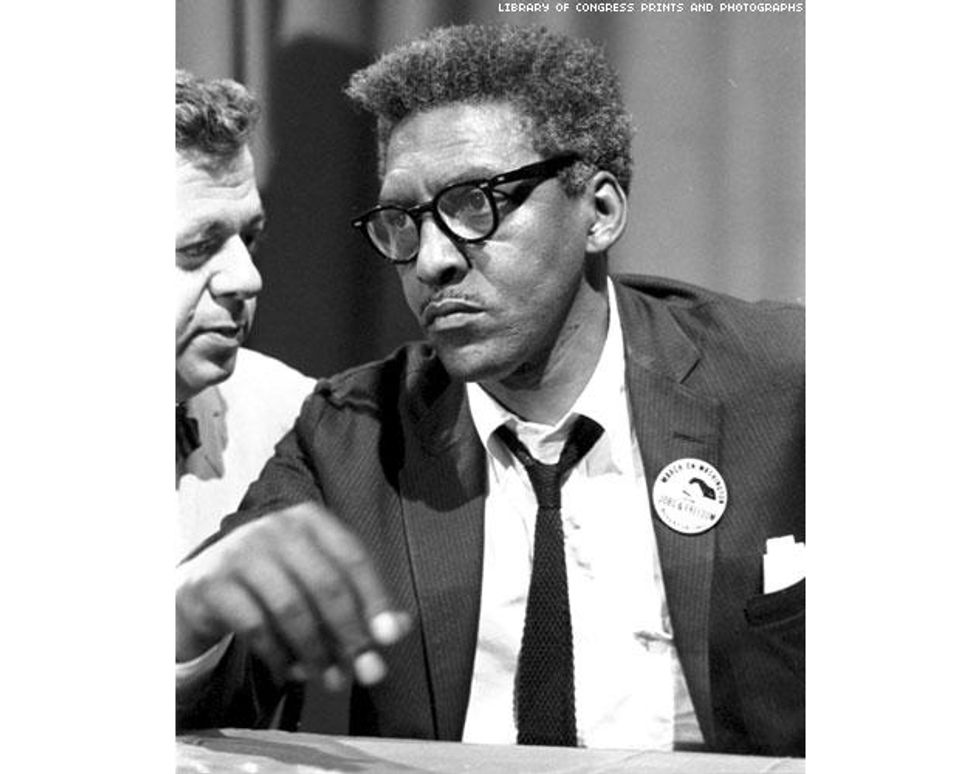
10. Rustin will be honored by President Obama largely due to an effort led by his partner of 10 years and the executor of his estate, Walter Naegle. "If Bayard were alive today, he would be very impressed at the pace with which change has occurred in the LGBT community," he told Out. The National Black Justice Coalition launched the Bayard Rustin 2013 Commemoration Project to encourage others to remember and honor Rustin's legacy. Mandy Carter, Bayard Rustin 2013 Commemoration Project National Coordinator, said, "Every year, during the Martin Luther King, Jr. holiday we hear the iconic 'I Have a Dream' speech, which was delivered at the 1963 March on Washington. Yet, most people do not know that Bayard Rustin, an out black gay man, was the key organizer for that groundbreaking event. America needs to know that Bayard existed. Black lesbian, gay, bisexual, transgender, and same-gender-loving people need to know that Rustin stood firm in his identity and, by his very presence, challenged others in the civil rights movement to overcome homophobia."

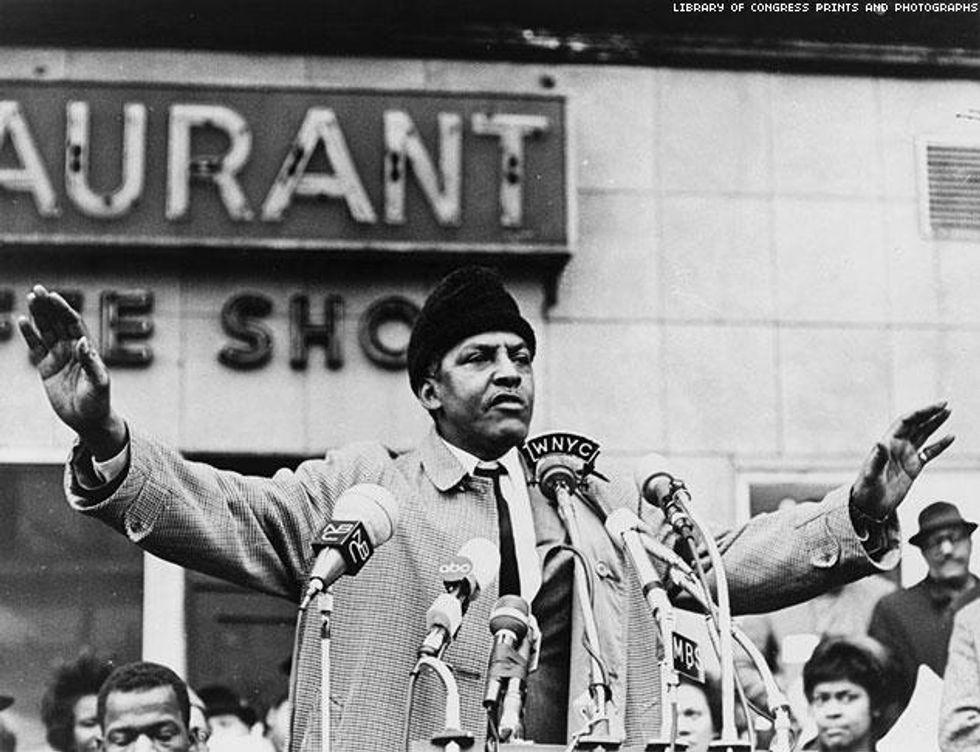
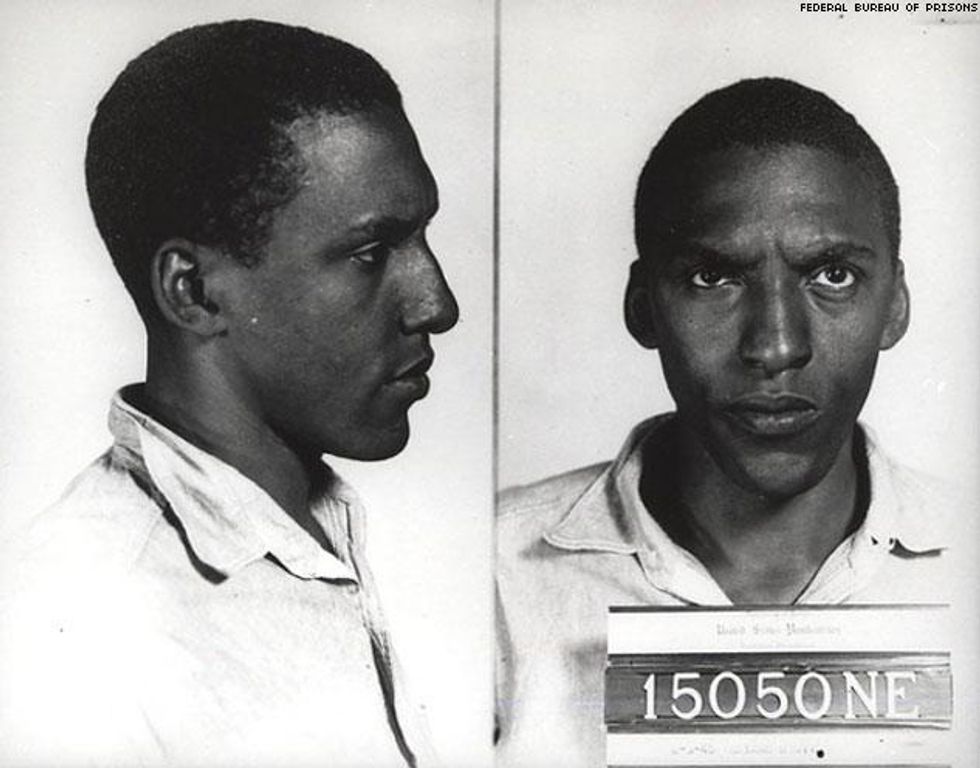
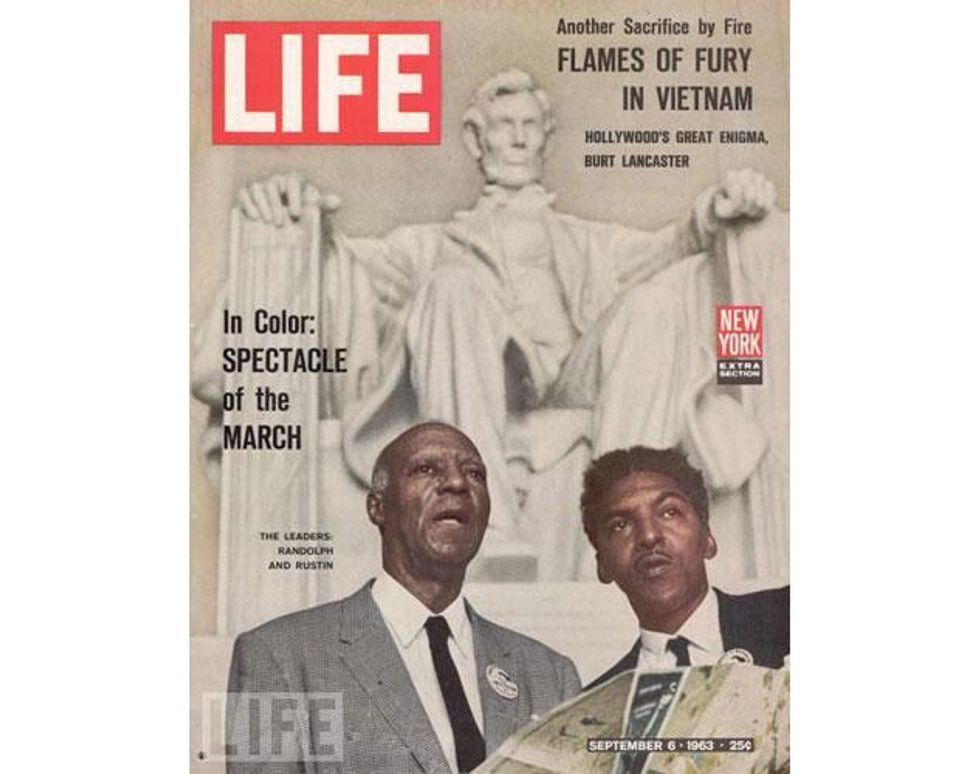














Charlie Kirk DID say stoning gay people was the 'perfect law' — and these other heinous quotes
These are some of his worst comments about LGBTQ+ people made by Charlie Kirk.